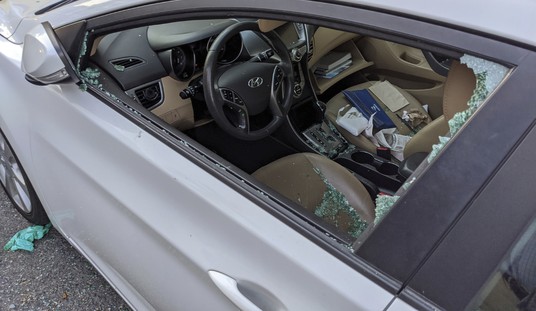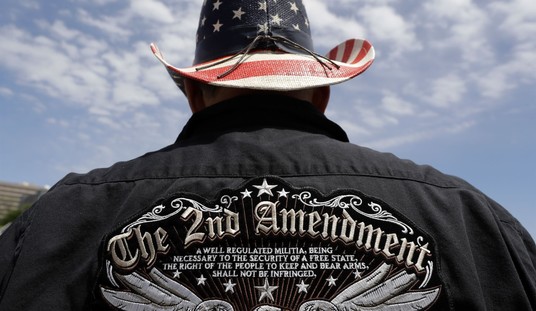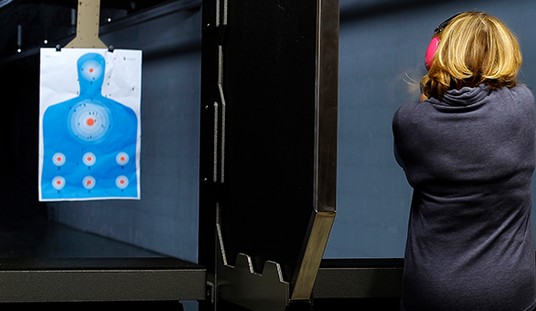Capitol Hill is swarming with lobbyists from national drugstore chains representing CVS Caremark, Walgreens, Walmart, and others looking to protect an expansion of the federal government’s 340B drug subsidy program.
The Obama Administration opened up the program to the drugstores allowing them to dip their beaks in a multi-billion dollar program designed to help the poor.
Inside the 2,700 pages of the Obamacare health legislation was a dramatic expansion of the types of facilities eligible to cash in on the 340B program’s bounty.
The 340B drug program was created as part of the 1992 Veterans Health Care Act. The program, administered by HHS’s Health Resources and Services Agency, is a subsidy program designed for certain health clinics certified or operated by the federal government, as well as “safety-net” hospitals that serve underprivileged communities.
The law compels drug companies to sell drugs to these clinics and hospitals at steep discounts as a condition of their being allowed to sell the same drugs to Medicare and Medicaid.
In addition to the federally-certified or operated clinics and safety-net hospitals, critical access hospitals, sole community hospitals, rural referral centers, free-standing children’s hospitals, and free-standing cancer hospitals are now authorized.
The nod to rural hospitals is not a surprise since the director of HRSA is Mary Wakefield, a registered nurse and a former chief of staff for Sen. Kent Conrad (D.-N.D.). When she was hired by Obama, Wakefield was the director of rural health at the University of North Dakota.
When she announced the list of new facilities in August 2010, Wakefield said she hoped the number of facilities participating would increase from 14,000 to 20,000.
Because patients, or rather their private insurance companies, are charged the full retail price of the discounted drugs, the clinics and hospitals rake in significant profits.
The high profit margins are meant to support the clinics and hospitals in their good works for the communities they serve.
The hospitals and clinics in the program are also supposed to offer drugs to uninsured patients at the 340B prices. But, a report by the HHS inspector general’s office found little evidence of participating hospitals and clinics sharing the poor.
Understandably, such a program is ripe for abuse, and evermore so after the passage of President Obama’s 2010 Patient Protection and Affordable Care Act, or Obamacare.
In another change to the 340B program, Wakefield gave the green light to clinics and hospitals partnering with drugstore chains. The clinics and hospitals can now buy drugs at their 340B prices and then hold those inventories at local drugstores that are networked with their partners.
In effect, these clinics and hospitals are now operating as drug wholesalers beyond their own four walls.
One company, Healthcare Corporation of America, based in Denville, N.J., sold $1 million in converted bonds with an 8 percent coupon in April to finance marketing of its 340B software program that helps facilities maximize their profits through the subsidy program. In their public statements about the offering, the company cited a report by Berkeley Research Group that estimated that drug purchases under the 340B program will grow from $6 billion in 2010 to $12 billion in 2016.
Actual prices with the 340B program are tightly guarded, but a common understanding is that the discounts run around 33 percent.
Given that rate, hospitals and clinics in the program would clear $4 billion in profits.
Not bad.
A Pennsylvania GOP congressman, leading the charge against fraud in Health and Human Services’ 340B drug program, told Human Events the program has lost its way.
“As with any federal program, strong and effective oversight is essential to ensure that the program is being effective and efficient,” said Rep. Joseph R. Pitts, who represents a district that includes Lancaster County, Pennsylvania.
Pitts, who is the chairman of the Energy and Commerce Health Subcommittee said, “Reports prepared by both the HHS Office of the Inspector General and the Government Accountability Office raise important questions about the degree to which the 340B program may be fully accomplishing its core mission of helping the uninsured access prescription drugs.”








Join the conversation as a VIP Member